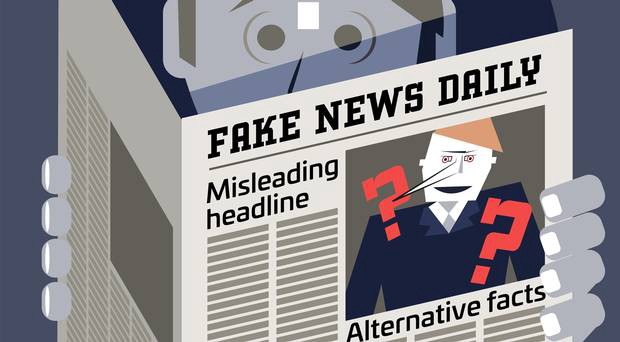May 09 2019
Source Credibility
 How much of an influence does the source of information have on our reactions to that information? Not surprisingly, it has a significant effect. A new study supports this conclusion, but I think the implications are far more narrow than the reporting suggests.
How much of an influence does the source of information have on our reactions to that information? Not surprisingly, it has a significant effect. A new study supports this conclusion, but I think the implications are far more narrow than the reporting suggests.
In the study subjects were first given a generally positive attitude toward a character named Kevin. They were then told something disturbing about Kevin, that he beat his wife. However, one group was told this information came from official police reports. The other was told it came from a friend of Kevin’s ex-girlfriend. The new information had a much greater effect on attitudes when it came from a credible source than a dubious one. This was true even if the information first created a negative impression of Kevin, and then the subjects were later told the source of the information. They quickly corrected their opinion with the new information.
I find none of this surprising given prior psychological research. When it comes to beliefs about which we are largely emotionally neutral (like our attitudes toward a fictional character in a study) we tend to naturally follow a Bayesian approach – we update our conclusions as new information comes in. We also have a desire to be correct, all things being equal, and therefore would reasonably consider the source of information. The study results may also be reflecting a small confirmation bias. If subjects already believe Kevin is a good guy, they would be biased against changing this conclusion unless the new information warranted it. So a rumor from a friend of an ex-girlfriend, which we can easily rationalize away as having a grudge, is not enough. It’s hard to argue with official police reports, however.
Study author Melissa Ferguson is quoted as saying about this study:
“Our studies suggest that establishing credibility for news sources is the right policy to combat fake news.”
“Suggest” is an appropriately soft word here, but even that might be too strong for this one study. The problem is context, which we know from a growing body of research is critical to these issues. The problem with fake news is that it is often related to important or emotional topics, ones that relate to our tribal affiliations. I would predict that source credibility would have a negligible effect on combating such fake news.
When dealing with beliefs that relate to emotionally-held conclusions, or our source of tribal identity, we tend to deviate from a logical Bayesian approach. Rather we engage in motivated reasoning, and all the rules change. Facts become increasingly irrelevant, and our ability to rationalize is on full display.
Further, the relationship between source credibility and confirmation bias become intertwined. What I mean by this is that we tend to evaluate the credibility of a source based on whether or not it confirms what we already believe or want to believe. So Republicans might find Fox News more credible, while Democrats find MSNBC more credible. This is, in fact, what has been happening, with people increasingly trapped in ideological echochambers which become their reality. They believe they are well-informed, and that those who disagree with them are the victims of “fake news.” I am not implying a symmetry here in terms of objective credibility. Some news outlets are objectively better than others, in terms of their journalistic integrity and the neutrality and fairness of their editorial policy. The problem is with the perception of credibility, which seems to be determined by alignment with ideology, not the rigorousness of their process.
The result can be extremely frustrating. Many Americans, now, have probably had the experience of arguing with someone who seems to be living in an alternate reality. We have lost a shared common reality, even in terms of basic facts and logic, to feuding ideological realities. I applaud the fact that social psychologists are researching this problem, and the current study is one small slice of useful information. But I don’t feel that we are anywhere near a practical solution.
The problem, of course, extends beyond mere political ideology, or we can say that political ideology intrudes on scientific questions. It has now become a matter of political ideology whether or not the science on climate change, for example, is credible. We have lost to a large practical degree even the objective reality of a consensus of peer-reviewed published science or expert opinion. We are living in the age of revisionism, where politicians and ideologues can revise history and scientific reality to their liking. They can then spread their alternate reality online alongside other more traditional news outlets. All news and information has now just become noise, and people are free to rely on confirmation bias and motivated reasoning to sort through it all. We can all construct our realities by filtering the background noise, and then be confident in the conclusion that our beliefs are correct, and those who disagree with us are evil, part of a conspiracy, shills, or just hopelessly gullible or naive.
There is no simple fix for this. We need a culture change, we need to carefully consider changes to our information infrastructure, and above all we need to teach science and critical thinking.






